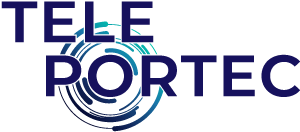Peter Wicher has been in Silicon Valley for more than 30 years. He uses his experience as a tech company executive, technologist, and educator to explain not just the “What” of exponentially-growing technologies, but also the “Why” and the “How.” Peter has been a leader in early-stage startups in AI, IoT, and education technology. His most recent technology company, InForce Computing, was Qualcomm’s partner for applying advanced smart-phone processors in IoT applications such as portable ultrasound and video analytics. As a senior executive in the semiconductor industry, Peter worked at the forefront of computer graphics and video including 3D gaming and high-definition television with companies such as 3dfx and Trident Microsystems. During those years he defined multiple system-level products that together generated nearly $1B in revenue. Peter was awarded the U.S. patent for a video design that most of us have used: showing a presentation from your laptop computer on a projector or TV.
Peter has extensive international experience, having managed offices in 10 different countries. In 4 years as Director of Strategic Relations at Singularity University he consulted for many national governments, helping them to understand the pace of technological change and how to be ready for the future that is coming.
Peter holds BS and MS degrees in electrical engineering and computer science, and an MBA, all from Berkeley, as well as an MS in Special Education from St. Joseph’s University. He shares his thoughts on how exponentially growing technologies will be used to tackle important social challenges in his blog, www.FutureResolve.com.
Sample Topics
The Art of The Possible
This talk explains the accelerating pace of technological change, and how leaders with the right mindset, talent, and vision can harness that pace to solve global challenges. The world’s greatest problems such as education, water, food, energy, shelter, and healthcare, represent an entrepreneur’s greatest opportunities. The presentation covers a range of exponential technologies such as AI, IoT, Computing, Digital Biology, 3D Printing, and nano-technology. It gives examples of companies and organizations that are succeeding in leveraging these expanding capabilities to drive significant growth. It also shows cases of those who are missing out, and examines why. Today we are experiencing the slowest rate of change that we will experience for the rest of our lives, because tomorrow it will be faster! Individuals and organizations who embrace that reality will be able to thrive in the future that is coming.
Computing, Networks, and Sensors
Humans have always had an insatiable appetite for understanding! Whether it was tracking debts and taxes, taking inventory, or creating virtual environments, the development of computers, networks, and sensors has always been driven by our desire to know and to share our knowledge. The pace of change is relentless: the next ten years will see more opportunities for meeting important human needs than there have been in the past century. This talk reviews the history of computing, networks, and sensors and forecasts the future of developments like GPUs, quantum computers, sensors on and in humans, and how they, and we, will be networked together. In the future, transactions will be increasingly transparent on all sides, and the stakes for making solid business and ethical decisions will be ever more consequential.
The Internet, of Everyone and Everything
It has been twenty years since Neil Gross coined the term, “Internet of Things.” This talk explains the history of the Internet of Things, IoT, and projects its extraordinary future. Far beyond smart cameras and robotic vacuum cleaners, the IoT will give us the ability to know anything, about anything, at any time. It is information about everything that matters to us: our environment, our safety, our productivity, the things we build, use, live in, eat, and drink. What does that actually mean for individuals, organizations, and decision makers? Being able to ask the right questions will become a vital skill. Issues of ethics and privacy, which frequently differ across cultures, must be managed. This talk will cover the history of IoT and project its future. A variety of fascinating sensors and applications will be covered. Today we can put a full-blown networked PC on the back of a bee: what will be possible in 20 years, and why? The talk explores key IoT applications in health, environment, manufacturing, education, and more. In the future, when information about anything is abundant, understanding what information is truly important will be critical for personal and organizational success.












